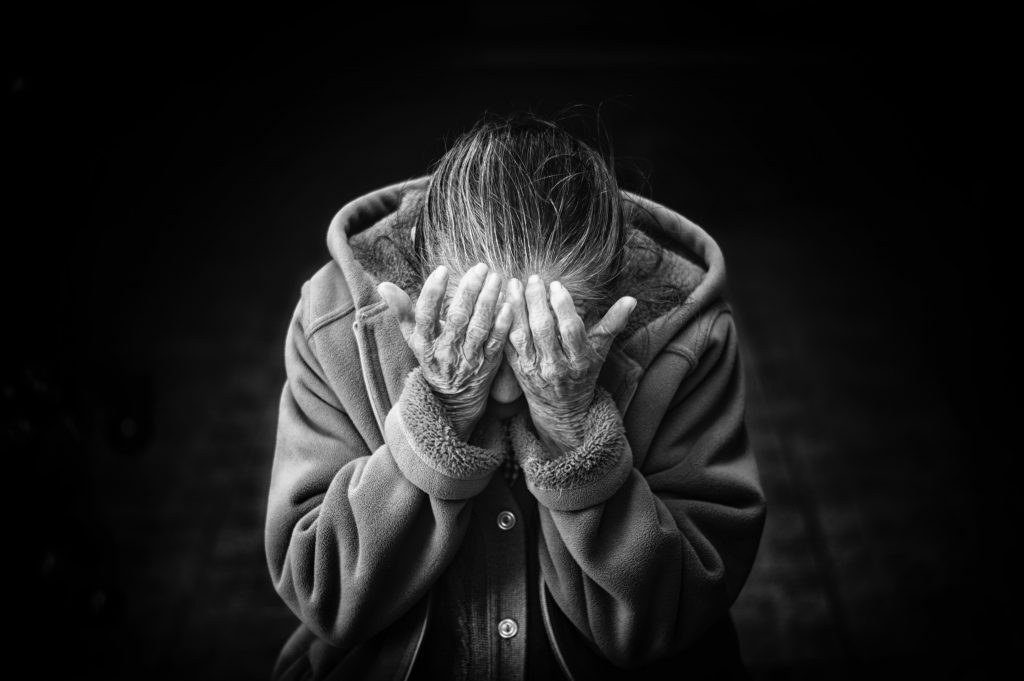“Israel gained by education. The Lord was not going to lead a mob of slaves into Canaan, to go and behave like slaves there. They had to be tutored. The wilderness was the Oxford and Cambridge for God’s students. There they went to the University, and he taught and trained them, and they took their degree before they entered into the promised land. There is no University for a Christian like that of sorrow and trial.” – Charles Spurgeon
Why Does Trouble Prevail?
Where do pain and suffering come from? Whenever I hear this question arise, it more than likely stems from trying to make sense of something painful or terrible that has occurred to us. Someone we love or know has died suddenly. We witness a terrible natural disaster unfold or the tragic consequence of hundreds of thousands of people fall sick, or worse, lose their lives at the hands of a pandemic caused by an incurable virus. In the face of tragedy, we start to question everything. Why are these things happening? Why do the young die? Why do the oppressed receive no justice? Why does trouble prevail in our world so frequently and why is it so difficult to avoid? The question that stings the most for many, including myself is: ‘How could God let something as painful and terrible as this happen?’

The question on everyone’s minds, whether it be covert or overt is; ‘who causes suffering?’ In other words ‘who is responsible for the pain that I am feeling?’ Our inclination to make sense of our suffering is often done by trying to work out to whom we can fix the blame for what seems an unfair dose of pain and trouble. Most importantly as Christians we try to reconcile the truth of God’s sovereignty with the existence of our pain and suffering, we struggle to tread the tightrope of wanting to believe that God is in control of everything that occurs in our lives, both the good and the evil, while trying to avoid resentfully blaming God when we are struck with tragedy in our lives. Let’s be honest this rope is not an easy one to tread. But we must be willing to walk it, in order to view the pain and suffering that we face through a corrective lens. So let us walk through it together.
In the Beginning
The first thing that is helpful to understand is that before there was any sin, suffering did not exist. In fact, it was the total opposite. Genesis 1-2 paints a picture of bliss and abundance, a world free from strife. No pain or suffering exists. Most importantly God is the architect of this goodness and He approves it as being good by measuring it according to the standard of His innate goodness (Gen 2:31). Genesis 3 is where we see things take a turn for the worst. We are introduced to a sly and conniving character who sets out to be an adversary to the goodness that God has created. His ultimate goal in opposing the utopian goodness that exists is by convincing man that the good that God has created is in effect not that ‘good.’ From Gen 3:6, we see mankind grow increasingly doubtful of God and His ability to be good and do good for them. Their scepticism of God’s order and choice for their lives means they are enticed away from God’s good choice and drawn to their own ‘good.’ Ultimately by doing so, they reject God and His prized relational goodness and all it entails (abundance, safety etc).

Vince Vitale remarks that ‘wherever there is the possibility of rejecting relationship, there is also the possibility of pain and suffering.’ If we know this to be true, then separation from God’s goodness as a result of one man’s disobedience in rejecting God’s command opened the door to the existence of suffering. Most of us would be quick to point out that the suffering of mankind begins when God punishes Adam, Eve and Satan for their sin (Gen 3:14-19), however, we see suffering enter the picture much earlier. The first signs of suffering we witness are in Adam and Eve’s torment that leads them to attempt to ‘hide’ from God and feel shame from their nakedness (Gen 3:8-10).
But who causes the suffering that we experience? If suffering exists as a result of the sin that has entered the world, does the pain we feel as a result of our suffering come from Satan who perpetuates the sin that leads to our suffering or from God who is control of all things and authorises the suffering that enters our lives?
God’s Sovereignty in Calamity
The book of Job helps us find the answers that we seek regarding these questions. In the opening chapters (Job 1) we get a rare glimpse at the ongoings within the heavenly courts. The sons (angels) of God have assembled as Satan approaches God’s royal court to challenge him. God remarks on Job’s piety and Satan scoffs at Job’s blameless character arguing that he is only upright by virtue of wanting to appease God to receive His blessings. What’s important to note is that in the same way that Satan is permitted by God to challenge Him in His royal court, he is also given permission by God (though limited) to attack Job. The running theme here, that should be understood, is that Satan is subordinate to God. This paints a picture of God’s active sovereignty in relation to our suffering, in the sense that He allows evil to enter our lives. The truth is that God brings suffering upon us whether it is at the hand of Satan and supernatural evil or the sinful consequences of man. The Bible shows the indicative causality of God’s sovereign hand and our pain and suffering (Job 1:21, Job 2:10, Job 42:11). However we must always remember the God in whom we serve, One who’s character is marked by holiness and remains utterly untouched by evil, though he allows the trouble of evil and terrible circumstances to enter our lives which cause us pain and suffering.

However, in all this, it is the motive that makes the difference. God’s purposes for bringing suffering into our lives always point to His goodness and more importantly His love for us.
“Blessed is the one whom God corrects;
Job 5:17-18
so do not despise the discipline of the Almighty.[a]
For he wounds, but he also binds up;
he injures, but his hands also heal.
So while Satan strikes out of malice, God allows His people to suffer out of loving concern for His people and ultimately His glory in their lives. And the ultimate glory can be found in that He allowed His only dear Son to suffer for our sake that we might experience the beauty of His grace in salvation.
Though we may not always have all the answers for why our pain and suffering happens in the way that does, encouragement and relief can be found in knowing that God is in control of the suffering that enters our lives. There is safety and security – knowing that the One who is in charge, cares for us and works all things together for our good (Rom 8:28).